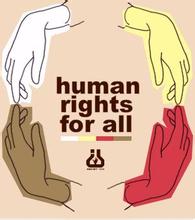听力文本

At a recent hearing of Parliament’s Foreign Affairs Committee a lively exchange occurred onthe place of Human Rights in Foreign Policy considerations. The Committee heard that whileHuman Rights were still an integral part of the FCO’s work, they were no longer one of the toppriorities. Trade was now further up the list.
Integrating human rights into foreign policy poses difficult dilemmas for many westerngovernments. Getting the balance right all the time can be challenging. The late Robin Cook,spoke of an ethical foreign policy. Few countries now speak of such a policy, for fear of beingcalled out on it. But in my experience having served overseas as a diplomat, the ethicaldimension remains strong, albeit implicitly so.
Diplomacy is about building and maintaining relationships with individuals, groups and states –and sometimes with those who don’t share common values. Diplomacy navigates and influencesdifference. As with human relationships, if one desires a positive change in the other thenengagement is one way of achieving that through building up contact and hopefully trust andconfidence. In extreme cases of difference, diplomats might ask at what stage you can speakto terrorists? Or when can you deal with dictatorships and how? Earlier generations faced similarvalues dilemmas when dealing with the USSR and Warsaw Pact.
Political Scientists disagree on whether the market comes before the democracy or vice versa.That feeds into the policy dilemma on human rights and trade.
Adopting too absolutist an approach on trade or human rights is likely to be ineffective.Giving trade a stronger priority over human rights in foreign policy might actually hasten theday when they are more sustainably embedded, or it might simply help to sustain theinjustice. As with our human actions, all depends on the purity of motive underpinning thepolicy choice and the standards by which we discern that.
A self-interested utilitarian focus on trade alone is unlikely to bring positive change for eithersociety. Clive of India and the East India Company is a history not to be repeated. But equally, atoo purist approach to achieving human rights and democracy risks putting impossibleexpectations on developing countries, in particular the weaker ones, to achieve standardsthat took us centuries to deliver.
Trade and Human Rights are not mutually exclusive; in the right circumstances one can lead tothe other. When Jesus spoke about being as wise as serpents and as innocent as doves, heillustrated the balance that sometimes has to be struck. Foreign relations, like humanrelationships, ask us to discern the purity of our choices and subsequent actions. For peopleof faith, we believe that one day we will have to account for them.

姓名:肖菲
加入一诺教育前,就职于某知名留学服务机构,专注于美国本科申请,熟悉美国本科教育体制,有丰富的申请经验。细致、耐心,善于发掘并总结申请人的个性亮点,塑造申请人鲜明形象。
瓦萨学院(近全奖录取),格林奈尔学院(半奖录取),罗德岛艺术学院(美国艺术学院排名第一),麦吉尔大学,埃默里大学,加州大学洛杉矶分校,曼荷莲学院,布林茅尔学院,纽约大学,布兰迪斯大学等。
版权所有@2012-2016 一诺留学网 京ICP备12034294号-1
联系电话:400-003-6508 010-62680991 传真:010-82483329 邮箱:service.bj@yinuoedu.net